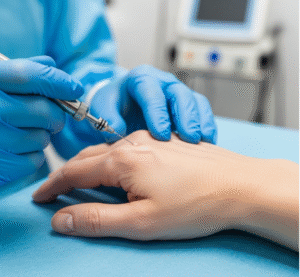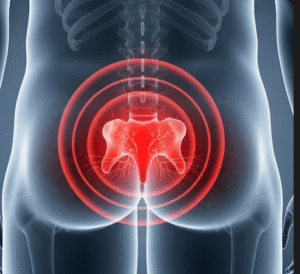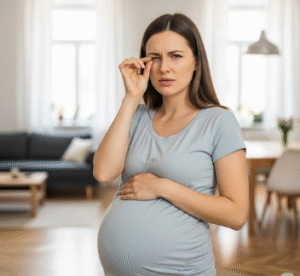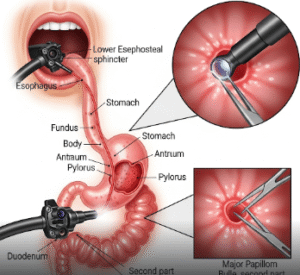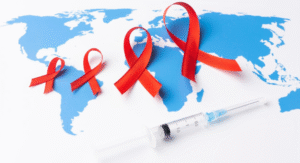Overview
Radiation enteritis is inflammation and damage to the small or large intestine that occurs after radiation therapy to the abdomen or pelvis. It is most often a side effect of treatment for cancers such as cervical, uterine, prostate, rectal, or bladder cancer. The condition can be temporary or chronic, and symptoms range from mild digestive discomfort to severe malabsorption and dehydration. In Korea, advanced cancer centers focus on minimizing radiation damage through precision techniques and providing effective treatment for patients who develop radiation enteritis.
What is Radiation Enteritis?
Radiation enteritis develops when radiation beams aimed at cancer in the abdominal or pelvic area also affect the healthy lining of the intestines.
- Acute radiation enteritis occurs during or shortly after treatment, usually resolving within a few weeks.
- Chronic radiation enteritis may appear months or years later, leading to persistent digestive problems and intestinal scarring.
Symptoms
- Diarrhea, often watery or frequent
- Abdominal pain and cramping
- Nausea and vomiting
- Loss of appetite
- Unintentional weight loss
- Bloating and gas
- Fatigue from dehydration or malnutrition
- Bloody or mucus-containing stools
Causes
The main cause is radiation-induced damage to the intestinal lining and blood vessels, which:
- Reduces the intestine’s ability to absorb nutrients
- Causes inflammation and swelling
- Leads to the formation of scar tissue and narrowed segments of the bowel
Risk Factors
- High-dose radiation to the pelvic or abdominal region
- Combined radiation and chemotherapy
- Pre-existing bowel conditions (Crohn’s disease, ulcerative colitis)
- Previous abdominal surgery
- Older age
- Diabetes or vascular disease
Complications
If untreated, radiation enteritis can cause:
- Severe dehydration and electrolyte imbalance
- Chronic diarrhea and malnutrition
- Intestinal strictures or blockages
- Perforation of the intestine (rare but life-threatening)
- Weight loss and frailty
Prevention
While not always preventable, the risk can be reduced by:
- Using advanced precision techniques such as IMRT (Intensity-Modulated Radiation Therapy) or proton therapy in Korea
- Carefully planning radiation fields to avoid unnecessary bowel exposure
- Staying well-hydrated during therapy
- Following a gentle, low-fiber diet during radiation
- Promptly treating any gastrointestinal infections
Treatment Options in Korea
Diagnosis
Korean specialists use stool tests, blood tests, colonoscopy, sigmoidoscopy, and abdominal imaging to assess inflammation, rule out infection, and evaluate the extent of intestinal damage.
Medical Treatments
- Anti-inflammatory and antidiarrheal medications
- Antibiotics for bacterial overgrowth
- Nutritional supplements and IV fluids
- Probiotics to restore gut microbiome balance
Surgical or Advanced Therapies
- Surgery to remove strictured or damaged bowel segments in severe cases
- Hyperbaric oxygen therapy to enhance healing of intestinal tissue
Rehabilitation and Support
- Dietary counseling to manage symptoms and improve nutrition
- Physical therapy to regain strength after prolonged illness
- Ongoing monitoring to prevent recurrence of symptoms




